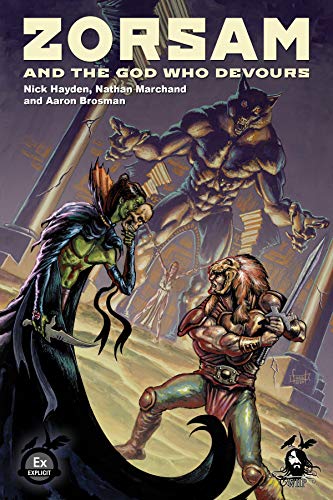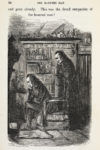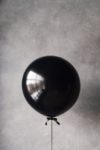
They told me I’m sick. They ran the wand over me and it beeped. I protested, but they led me away, into one of their wards, where we sick people are stacked in cubicles and told to wait until we recover or we die.
My room is a white, with a bed and a chair and an opaque glass door behind which is a bathroom the size of a telephone booth. The door to the outside is sealed. Food is delivered with a whirr. The screen on the wall listens and responds. It babbles and cracks jokes and fills the silence.
I shut it off and sit in sterile light.
After three days of meals slid through slots and false-sun brightness and three paces to cross the world, I begin to feel the sickness they discovered with their wand. I shiver upon the white bed and cough into the silence. The screen sings to my aching head. I shut it off again. I turn off the lights. The meal cools upon the floor. The screen pops on to tell me to eat and to drink 8 ounces of water every hour.
I scream at it. It continues unabated.
I stir and moan. I sleep and do not sleep and run my hands along the walls, restless and burning. There is a crack in the wall, a hairline fracture. I run my finger along it, up and down. I try to stick my fingernail in it, as if I could pry it open.
Finally, the screen sleeps, but I am wide awake and dead tired. My body aches. I hear something soft and almost inaudible. I listen. There it is–I press my ear against the wall, against the crack.
There is a voice, very soft.
“Hello?” I whisper, lips pressed against the wall.
A moment. “Yes?”
“Are you…I’m sick.”
“So am I.” It’s a woman. “Everyone is. Or nearly.”
“I heard your voice.”
She says nothing.
“Who were you talking to?”
“No one.”
“What were you saying? I haven’t seen anyone. Since I got here, I haven’t seen anyone.”
“No. We’re sick. They’re afraid.”
“You don’t sound afraid.”
“I guess I’m not.”
She says nothing else, and I have nothing more. Even this short exchange exhausts me. I think I could sleep now. I do. I don’t know how long. I wake sweating and thirsty. I drink. My nausea rises and rises and I gag, but I hold the liquid down. I lie still and try not to move, every position uncomfortable.
Across the silence, as across realms of space, I hear her words, but I cannot understand them. My ears reach out into the silence, trying to decipher the murmur. It is direct, fervent, almost pleading. It ends. Space is vast and empty once more. To speak is to issue meaning into the void.
“Are you there?” I rasp.
“Yes. How are you feeling?”
“Like I’m dying.”
“I’m sorry.” There is a pause before she says it, and I realize that she does not know whether I am actually dying. I do not know either.
“I tried to understand what you were saying.”
She does not answer at first. “There is another crack in my room.”
“Is he dying?”
“No.” There is no laugh, but a smile flashes across the world. “He is not.”
“What does he say?”
“I can’t–it’s not clear.”
I should pursue the conversation further. I should ask her questions about her own life. But I can’t think of anything. I can only feel, and that numbly, miserably, selfishly. I lay on my back, aching, sweating, eyes closed, out of breath. A meal appears, disappears. I stare at the door. No one enters. Machines clean the vomit off the pristine white floor.
There is no one in the universe. I alone exist.
“Are you there?” I call out. My voice is weak.
She does not answer.
“Help me,” I say. Perhaps she cannot hear me. I do not know what time it is or what day it is. I have forgotten what it is to be healthy.
“Listen.” I sense the words as much as hear them. Her voice vibrates meaning into my ear. “There is a crack….”
“Tell him I need help.”
“Another crack–in your room.”
“Where? Where?”
“Outside. Beyond.”
I gaze wildly about me. For days, I have stared at the ceiling, at the wall, at the floor with a restless mind, searching, searching for something. My room is unchanging, unyielding.
“I’m dying. I know I’m dying.”
“Tell him,” she whispers from the next world over.
“Who? How?”
“We’re all in boxes–sick or well. He’s outside. Pray to him.”
What do I say? I have no words; my soul is blind and mute. I lift my hands. I repeat the only words I have. “Help me.” I close my mind and drift in delirium.
Later, my trembling hand finds water. I eat. I sleep a dreamless sleep. When I wake, I sit up and eat again. It is as if I have shed an old skin, as if the room has been remade, as if it is the sixth day of creation. The screen cheerily comments that after 10 days more, if I continue to recover, I will be released. Also, it tells me to drink.
I shower and return to my bed. There are new sheets. I lay down, exhausted and press my face to the crack.
“Hello?”
There is no answer.
“I am feeling better. I am going to live, I think.”
She will not answer. I know why. Deep sorrow weighs upon me as I close my eyes, unable to sleep. I am not well enough yet to cry. My soul is still shriveled. I grope for the other crack and search for my gratitude and my tears.








Recent Comments